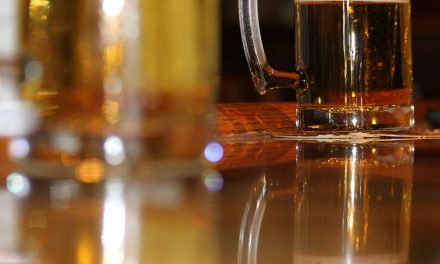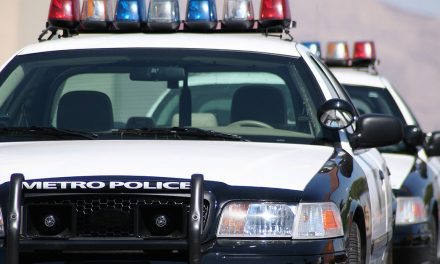What to Expect During and Immediately After a DUI Arrest in South Carolina
If you are driving home from a sports bar or gathering of friends after a night of drinking, the sudden reflection of red flashing lights in the rearview mirror can be alarming. While this scenario offers the potential of severe penalties and a murky future, a driver’s contact with law enforcement after a night of drinking will not necessarily lead to a DUI conviction. The way you handle the interaction with the officer and a prompt decision to retain an experienced Greenville DUI defense lawyer can improve your chances of a positive outcome. In this blog, we examine the initial stop and arrest process, field sobriety and chemical testing, and the driver’s license consequences of a DUI arrest.
The Initial Stop
A roadside traffic stop constitutes an inherently disturbing situation for people who have had little experience with law enforcement because the officer has the advantage of standing over you with a gun and the power of arrest. The first priority for any motorist in this situation is not to panic because a level head and the full exercise of your rights can allow you to impact the way the encounter turns out. The officer usually will have stopped your vehicle because of a traffic violation or perceived erratic driving. [DUI checkpoints that involve random stops are beyond the scope of this discussion.] The key point to keep in mind is that the officer must have at least “reasonable suspicion” a crime is being committed to justify the stop. If the officer does not have sufficient articulable facts to justify the initial stop, an experienced Greenville DUI defense attorney might be able to get all evidence obtained during the stop suppressed. While the threshold for meeting the reasonable suspicion test is relatively low, the officer cannot pull you over merely based on a hunch.
Officer-Driver Interaction
During the stop, the officer will attempt to gather additional evidence to create “probable cause” for an arrest. The officer will approach your vehicle to request your driver’s license and registration. Since you are required to provide this identifying information, you might want to hold the documents in your hands which should be clearly visible on the steering wheel. This apparent cooperation can avoid the awkward scenario of fumbling around looking for and dropping the documents, which the officer might characterize as “lack of coordination.” The officer will ask other questions, such as:
- Where are you coming from?
- Have you been drinking?
- How many drinks have you had tonight?
These questions are intended to elicit responses to justify a finding of probable cause for a DUI arrest. While you have the absolute right not to answer these questions, you should do so politely. One approach might be to indicate you are not comfortable answering any questions until you speak to your attorney. Although the officer is not going to let you call an attorney, there is nothing to be gained by answering these questions.
The officer also has another purpose for asking these questions during the stop. The officer will carefully observe your appearance, demeanor, and responses. This observation will focus on slurred speech, red bloodshot eyes, alcohol on your breath, and lack of coordination. In other words, the officer wants you to engage in a verbal exchange that allows him to extend the stop and gather evidence supporting a DUI arrest. If the officer continues to ask you to answer questions, you should reiterate your desire to speak to a lawyer and ask if you are free to leave. These physical characteristics can be related to illness, fatigue, and other innocent factors, which our attorneys understand, but there is no reason to give the officer a basis to extend the duration of your stop.
Standardized Field Sobriety Testing
Despite depictions on television, there are only three field sobriety tests that have been approved for use by the National Highway Traffic Safety Association (NHTSA). The three approved tests referred to as Standardized Field Sobriety Tests (SFSTs) include:
- Horizontal Gaze Nystagmus (HGN)
- One Leg Stand Test
- Walk and Turn Test
If the officer asks you to perform any test other than these three, the exercise is not considered to have any confirmed reliability in identifying an alcohol or drug impaired driver. Fortunately, a sub-standard performance on SFSTs frequently can be dealt with by our experienced Greenville DUI defense attorneys because the tests individually have significant error rates. Many reasons also exist for a poor performance on SFSTs that have absolutely nothing to do with intoxication, such as:
- Illness
- Injury
- Physical or mental disability
- Improper footwear
- Constricting clothing
- Lack of coordination
- Poor lighting
- Proximity to traffic
- Stress and anxiety
- Poor dexterity
- Officer preconceptions (self-fulfilling prophecy)
- Improper procedures, instructions, or demonstration
While the best decision might be to skip STSTs in most situations, this short list of reasons for poor performance on the walk and turn and one leg stand tests provide a basis for challenging such results in court. Further, the South Carolina Supreme Court has ruled that the HGN test is not accurate enough to be used unless combined with other STSTs. If the officer did not properly perform the walk and turn or one leg stand tests or the results of these tests are excluded, the HGN test result also must be excluded from use at trial.
These tests combined with officer observations before and during the stop usually will comprise the evidence used to support probable cause for a DUI arrest. Many people might wonder why they should agree to perform these awkward and unfamiliar physical and mental exercises. There are good reasons to decline if you know you have been drinking or suffer from physical or psychological limitations that might make the process difficult. While the officer will probably arrest you if you refuse to perform the tests, their purpose is to create more evidence to support the arrest and to be used at trial. If the officer asks you to perform standardized field sobriety tests (SFSTs), he or she has probably already decided you are intoxicated. Put simply, there is little for you to gain by agreeing to SFSTs unless you are certain you will perform successfully.
Arrest & Formal Chemical Testing
If the officer determines sufficient evidence exists to justify an arrest for DUI, you will be taken into custody and transported to a location for chemical testing (often the police station for a breath test). While you are not required to submit to the breath (blood or urine) test, there are consequences for refusal under the South Carolina implied consent law. Under the implied consent law, an individual driving in South Carolina consents to submit to chemical testing for drugs or alcohol via breath, blood or urine. Although a motorist can refuse this test, the refusal will result in driver’s license consequences separate and apart from any penalties in traffic court. (Click Here to Learn More).
Challenging DUI Charges Based on Improper Officer Procedures
Whether you are charged with DUI or DUAC, our DUI defense lawyers might assert a range of defenses based on improper actions by the police officer that could justify a dismissal of the charges, including but not limited to the following:
- Failure to provide a Miranda advisory of your rights justifying exclusion of incriminating statements
- Noncompliance with the strict requirements for SFSTs, which cannot be used at trial unless the proper procedures are observed
- Neglecting to turn on the arresting officer’s video camera when activating the squad car’s blue lights
- Refusing to give affirmative assistance in transporting you to a facility of your choosing for you to have additional BAC testing
- Failing to provide informed consent advisory regarding the consequence of a refusal to submit to chemical testing
- Lack of maintenance and calibration of the breath testing device
Driver’s License Consequences of a DUI
When you are arrested for DUI in Greenville or the surrounding areas of South Carolina, you will face potential consequence to your driving privileges both through the DMV and the traffic court. If the officer determines that you have refused to participate in a chemical test through breath, blood, or urine, you will face an administrative suspension of your driver license through the DMV. The DMV will also suspend your driver’s license if you have a BAC of .15 percent or higher. The length of the suspension will depend on your BAC level and/or whether you have prior refusals or DUI/DUAC convictions. [Click Here for More on Informed Consent Driver’s License Issues].
If you or someone you love has been arrested for DUI or any other alcohol or drug-related driving offense, we invite you to contact us 24/7 to protect your future. Our law firm is committed to providing effective legal representation and timely communication, so call us today at (864) 372-2896 or submit a confidential case inquiry form.


